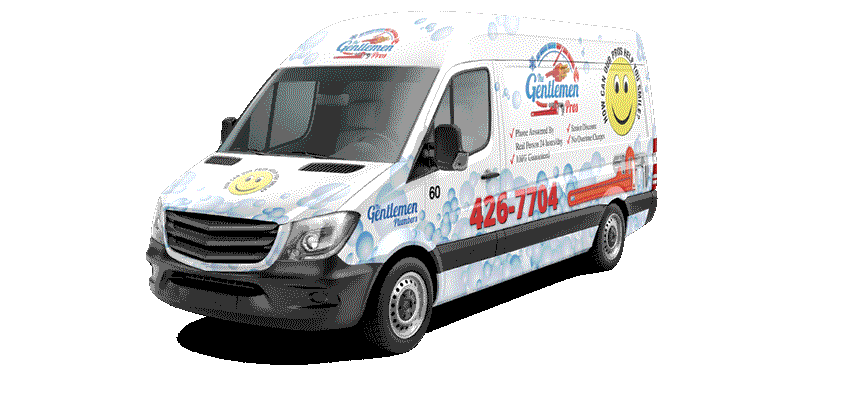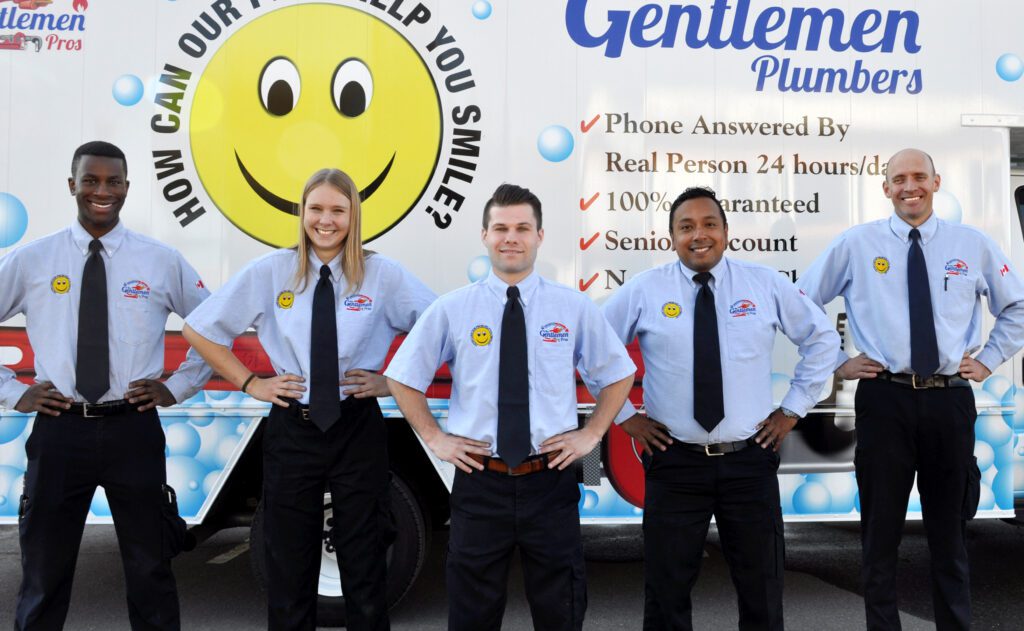
Same Day Service
Since 1992
Call The Gentleman Pros Now!
(403) 879-1759

A sewer backup happens when wastewater returns back to the home through a drain because the main sewer line is clogged.
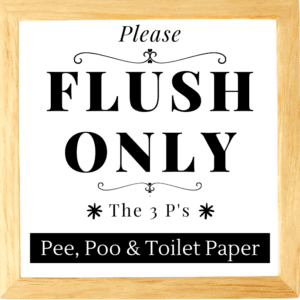
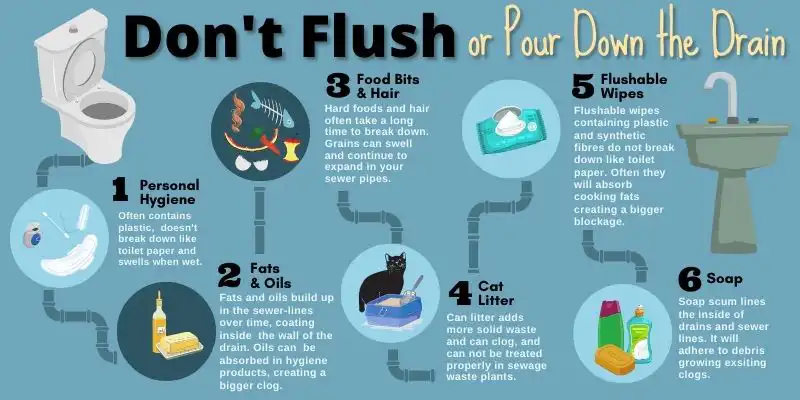
Most often a clog in your sewer line is a result of
Read on to understand how to prevent a major sewer back-up.
A clog in the main sewer line can form over time by flushing personal hygiene products, wipes, food bits, soaps and fats.
If a blockage already exists in the sewer lines, flushing the wrong things will worsen the problem as objects get caught on the clog making their way through the sewer line.
Toilet paper can break down when wet, but most hygiene items are made with plastic content.
Dental floss, q-tips, cotton swabs, and feminine hygiene products all have plastic content. This means they won’t break down and often contribute to clogs in the drain.
DON’T FLUSH TAMPONS!
Tampons swell and expand when they are wet, and don’t break down like toilet paper. They are often the cause of clogs in the sewer line. Flushing tampons will create a bigger blockage when there is an existing sewer clog.
Tampons are most menacing when they collect grease and oil. The grease and oil collect on the tampons, giving the grease form and structure.
Although convenient, condoms should not be flushed. Because of the plastic content, it doesn’t break down. Condoms can easily catch on to an existing clog.
No!
Flushable wipes contain plastic and are stronger than toilet paper and do not break down.
Flushable wipes are especially problematic when they absorb oil and grease, giving a structure to oil and grease and creating clogs.
“Flushable” wipes not only cause problems to your sewer system, but they are problematic to the municipal sewer systems causing clogs further down the line.
Wipes will collect and grow existing clogs. They are notorious for being caused by root intrusions, fatbergs or other non-flushable objects.
Fats, oil and grease are decieving liquid form but harden as they cool, coating the pipes and creating blockages.
When oils and fats are absorbed by personal hygiene products or “flushable wipes” they become very problematic! Fatbergs occur when fat congeals onto other non-biodegradable waste, giving the fat a frame to hold to.
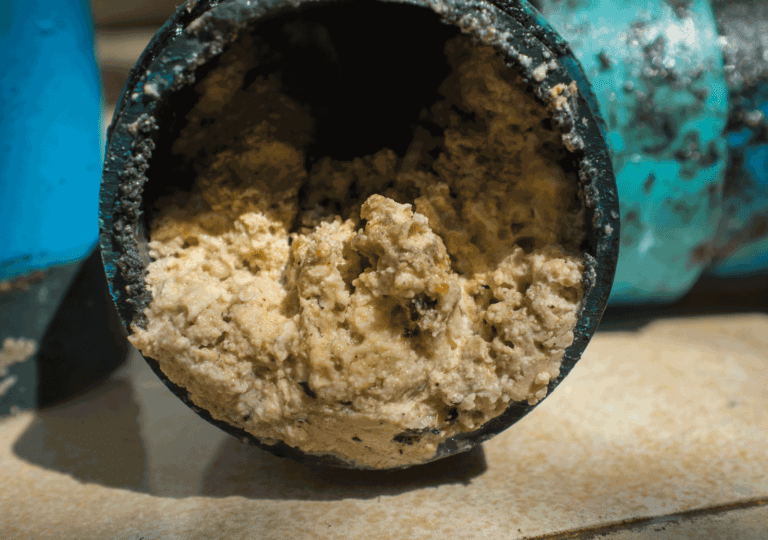
The best way to dispose of cooking oil is to collect it in a container and then toss it in your garbage.
The best way to dispose of bacon grease, animal fat or vegetable fat is to cool it to a solid state at room temperature, and then wipe it into the garbage or compost.
Fatberg is a compound of the words “fat” and “iceberg”, and is a mass of congealed cooking grease and a combination of other non-biodegradable solids that gives the fat structure.
“Flushable” wipes, cotton swabs, tampons, pads, condoms and food waste form with oil and fat and grow until they clog the sewers.
Fatbergs have been found sewer in city sewer systems all over the world, including London, New York, Dever, Baltimore, Liverpool and Melbourne. The largest Fatberg was found in Liverpool, England, weighing 400 metric tons and 820 feet (250 meters) long.
The Museum of London has two pieces of Fatbergs on display.
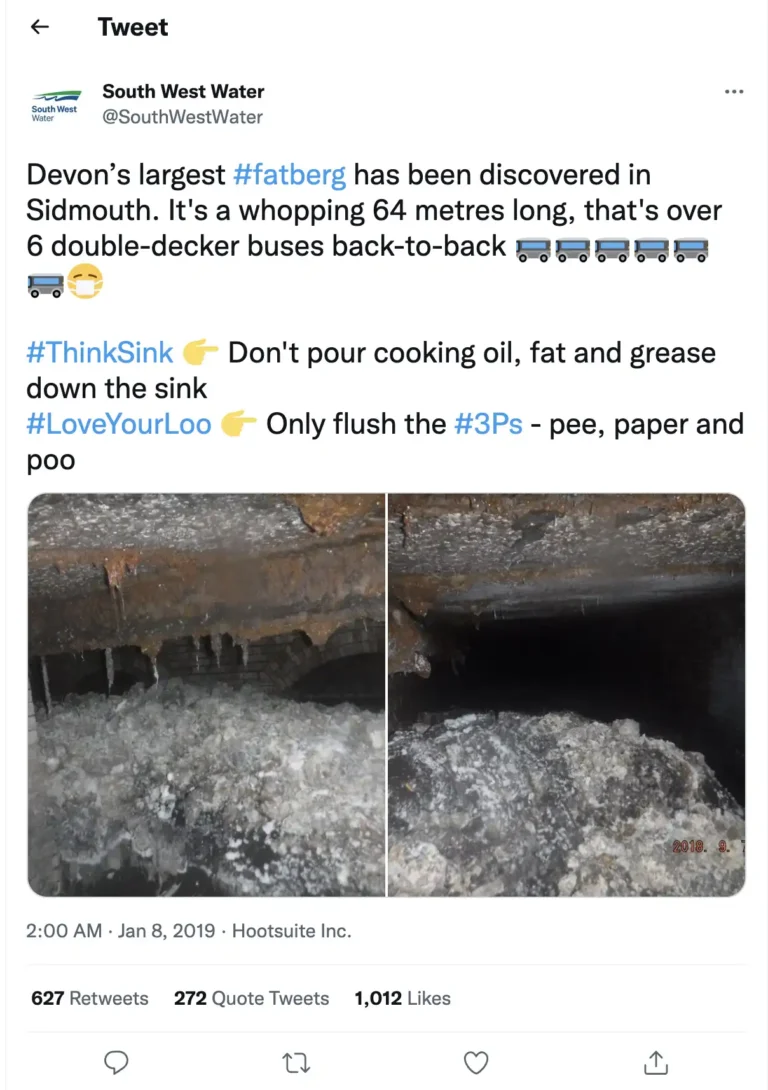
Yes, soap scum can build in your drains!
Soap scum is created when the minerals in hard water react with the fatty acids in the soap.
Soap scum can coat the drain and grow any existing clogs in the sewer line especially when it adheres to food bits, hair, oil or anything else put down the drain.
Use an organic drain cleaner to consume soap scum and organic build-up.
Use an organic drain cleaner to consume soap scum and organic build-up.
Soap scum is created when the minerals in hard water react with the fatty acids in the soap.
Soap scum can coat the drain and grow any existing clogs in the sewer line especially when it adheres to food bits, hair, oil or anything else put down the drain.
Food waste can easily cause clogs in drains when the wrong foods are put down the garbage disposal. (Also it is better for the ecosystem for food waste to be composted.)
There is a misconception that if the garbage disposal is strong enough, it could break down any food. The bigger problem is food waste settling in the drain pipes. Even if the garburator has the horsepower to pulverize it, limit the amount of food waste you put down your drain!

Do not put these food scraps down the garbage disposal or drain:
Bones, shells, cobs, and pits will not break down and often collect in the drain pipes and main sewer line, possibly forming a clog.
Corn husks, peals, fibrous vegetables, and artichokes should never be put in the garbage disposal. Use your green bin, because putting these food waste items in your garbage disposal can clog your drain.
Pasta, rice, potatoes, and bread will expand as it absorbs water while sitting in the drain. After expanding the food waste can become sticky and inflated, potentially clogging the drains and sewer lines.
Because fat, oil and grease are in a warm liquid state when wash down the drain, we can forget that it cools and solidifies as it moves further down the drain pipe. Wastewater does not dissolve the fat, oil and grease as it moves through the pipes.
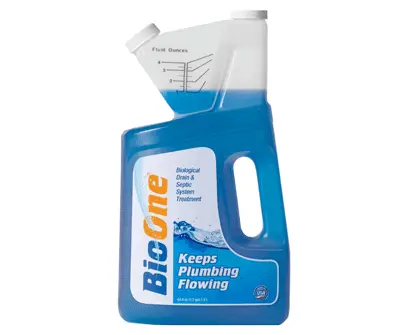
Tissues are not recommended for flushing.
Tissues are designed to retain moisture and not break down as easily as toilet paper. Tissues can cause clogs and blockages and will contribute to a growing blockage in the sewer pipes.
